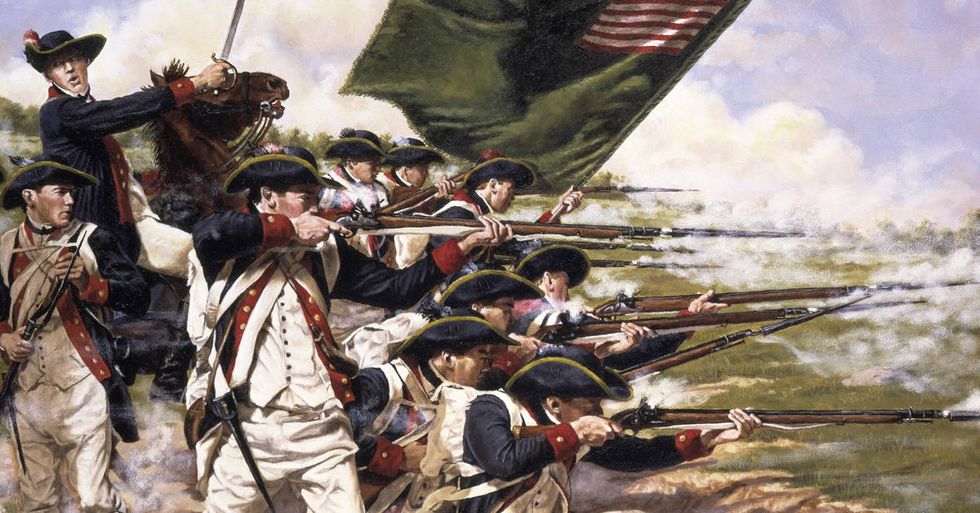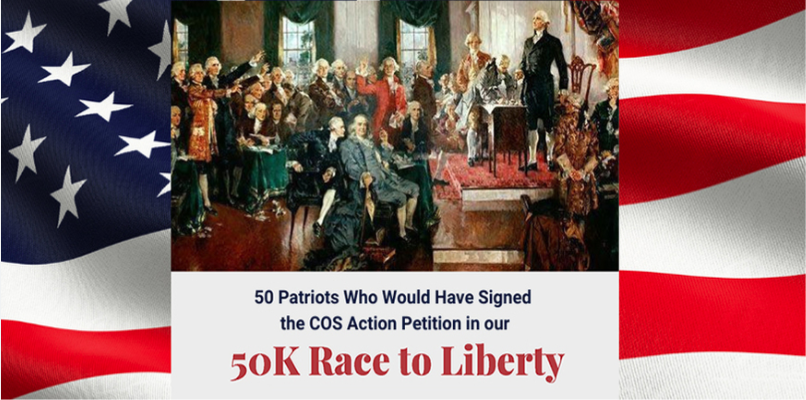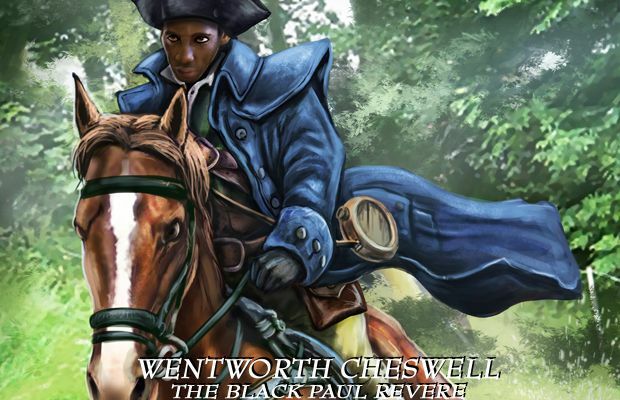As we near the end of our 50 Patriot series, it is important to take the time and reflect on the faith it must have taken for each of these individuals to stand up for liberty, a concept that wasn’t yet tangible. At the time of the Revolutionary War, America was a simple dream - an idea that wasn’t fully fleshed out. She held no promises, only a chance, and to get there the Patriots had an entire Empire to defeat.
Knowing what we know now, it can be easy to assume we would have done the same thing.
“Of course I would stand for freedom!”
“Of course I would stand for liberty!”
…and yet, I can’t help but look around at the current climate and be astounded at the number of people willingly accepting an erosion of our liberties - liberties I used to believe untouchable.
I challenge you to think of the historical context, understanding that these men and women didn’t know how it ended, and yet they still stood. They felt the weight of their decisions, many of them faced death and ruin, and yet they still stood. Many of those who fought wouldn’t live to see the birth of their country - their children and countrymen the beneficiary of their sacrifice, and yet they still stood.

Born in 1746, Wentworth Cheswell was the son of Hopestill Wentworth, a free black man with biracial ancestry, and Catherine Cheswell, a white woman. Cheswell came from a line of great, brave men - his grandfather was born into indentured slavery and worked his way to freedom, being the first black man to purchase and own property in New Hampshire.
Hopestill was a housewright, or builder, and businessman. In fact, many of the colonial buildings in Newmarket, NH were built by him. Hopestill purchased 100 acres of his own land and was owner of a sawmill. His prosperity helped to fund the education of his son, Wentworth, who attended Governor Dummer Academy in his youth where he obtained a classical education learning Latin, Greek, reading, writing, and arithmetic.
After completing his education he returned to Newmarket and became a school teacher. He purchased his first plot of land from his father and by 1770 owned 114 acres. He was an established land owner and pew holder in his community and was elected as Town Constable in 1768.
Many historians believe that Wentworth Cheswell was the first black man elected in America’s history. Cheswell continued to be a leader in his community, holding various elected offices nearly every year until his death in 1817.
During the Revolutionary War, Newmarket was highly supportive of the Patriots in their fight against England. In 1776 Cheswell, along with 162 other Newmarket men, signed the Association Test - a petition of people opposed to hostile actions by the British. The number of petition signers gave the Patriots assurance that their acts would be supported by most of the colonists.
In 1774, Cheswell was elected town messenger for the Committee of Safety - a position that entrusted him to carry news from the Provincial Committee at Exeter. On December 13th, 1774, Paul Revere was sent to Portsmouth to warn of incoming British warships sent to reinforce Fort William and Mary and seize its powder and arms.
Revere was looking for help from the neighboring communities. Newmarket sent 30 armed men to Portsmouth and Cheswell rode to Exeter to receive instruction from the Provincial committee. On the morning of the 14th, several hundred men marched on Fort William and Mary, removing 100 barrels of gunpowder, light cannons, and small arms. These munitions would later be used against the British military in the Siege of Boston.
Cheswell continued to serve under John Langdon in a select company called “Langdon’s Company of Light Horse Volunteers” and made the 250 mile journey to Saratoga, New York - bolstering the Continental Army at the Saratoga Campaign. The Battle of Saratoga found American’s defeating British General John Burgoyne, marking the first major victory in the American Revolution.
At a time when the “greatness” of America is openly mocked by elected officials and media outlets and history is rebuffed, I would encourage you to honestly think about what the idea of America meant at the founding of our country.
Read the stories of these patriots, understanding that it was their greatness as individuals that led to a movement unlike any other - the dawning of this great American experiment. The courage it took for the men and women of the Colonies to stand up against tyranny was not only extraordinary - it changed the world. Men like Wentworth Cheswell changed the world.






